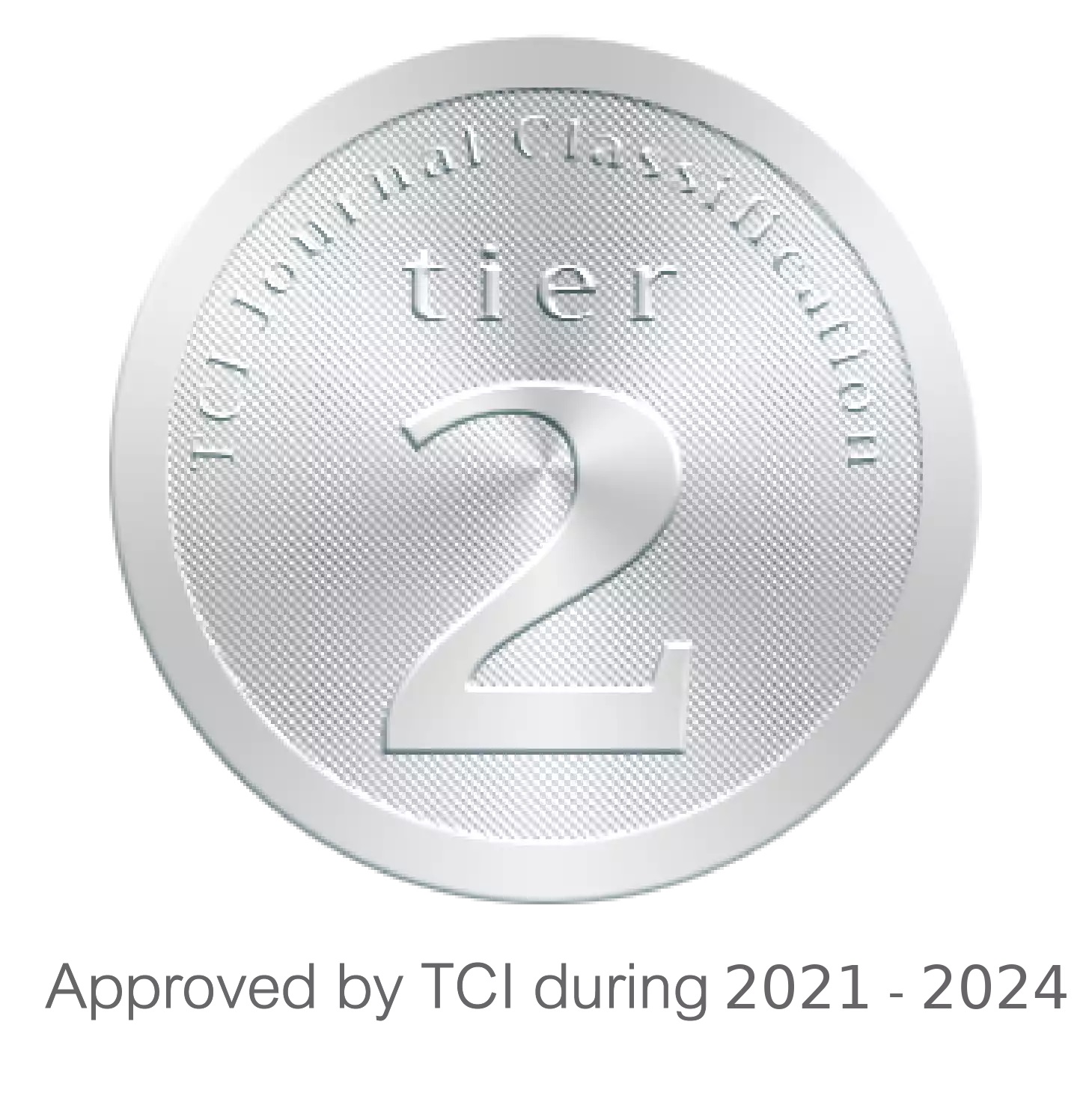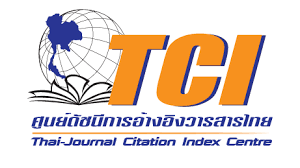การพัฒนาพฤติกรรมจิตอาสาของนักศึกษาโดยใช้การเรียนรู้แบบ โครงงานคุณธรรม
Development of volunteer mind behavior of students utilizing a moral project based learning
Keywords:
การเรียนรู้แบบโครงงานคุณธรรม;พฤติกรรมจิตอาสา, moral project based learning;volunteer spirit behaviorAbstract
การวิจัยครั้งนี้มีวัตถุประสงค์เพื่อ 1) ศึกษาความแตกต่างของพฤติกรรมจิตอาสาของนักศึกษาที่ได้รับ การจัดการเรียนรู้แบบโครงงานคุณธรรมกับนักศึกษาที่ไม่ได้รับการจัดการเรียนรู้แบบโครงงานคุณธรรม 2) ศึกษาปัจจัยที่มีอิทธิพลต่อพฤติกรรมจิตอาสาของนักศึกษาคณะวิทยาการจัดการ มหาวิทยาลัยราชภัฏสกลนคร และ 3) ศึกษาข้อมูลเชิงลึกเกี่ยวกับพฤติกรรมจิตอาสาของนักศึกษาและแนวโน้มที่จะทำงานด้านจิตอาสาในอนาคตของนักศึกษา กลุ่มตัวอย่าง ได้แก่ นักศึกษาชั้นปีที่ 3 คณะวิทยาการจัดการ มหาวิทยาลัยราชภัฏสกลนคร ปีการศึกษา 2555 เป็นการวิจัยแบบผสานวิธี (Mixed Methodology Research) โดยใช้การจัดการเรียนรู้แบบโครงงานคุณธรรม เครื่องมือในการวิจัย ได้แก่ แบบสอบถาม แบบสัมภาษณ์ แบบประเมินโครงการ การวิเคราะห์ข้อมูลเชิงปริมาณใช้สถิติ ค่าความถี่ ค่าร้อยละ ค่าเฉลี่ย ส่วนเบี่ยงเบนมาตรฐาน การทดสอบค่าที (Independent Samples t-test) ค่าสัมประสิทธิ์สหสัมพันธ์ การวิเคราะห์ถดถอยพหุคุณแบบขั้นตอน (Stepwise Multiple Regression Analysis) ส่วนการวิเคราะห์ข้อมูลเชิงคุณภาพใช้วิธีการวิเคราะห์เนื้อหา (Content Analysis) จัดหมวดหมู่ของเนื้อหาและนำเสนอข้อมูลเชิงพรรณนาวิเคราะห์การวิจัยพบผลดังนี้ 1. นักศึกษาส่วนใหญ่มีคะแนนค่าเฉลี่ยของพฤติกรรมจิตอาสาอยู่ในระดับมาก ( =3.79) เมื่อพิจารณารายด้านพบว่า ด้านที่มีคะแนนค่าเฉลี่ยมากที่สุดคือด้านการมุ่งมั่นพัฒนาสังคม ( = 3.79) รองลงมาคือด้านการช่วยเหลือผู้อื่นและการเสียสละต่อสังคม มีคะแนนค่าเฉลี่ยเท่ากัน ( = 3.77) 2. ปัจจัยที่มีผลต่อพฤติกรรมจิตอาสาของนักศึกษาพบว่า ตัวแปรด้านทัศนคติต่อพฤติกรรมจิตอาสาของนักศึกษาอยู่ในระดับมาก ( =3.76) ตัวแปรด้านการรับรู้ความสามารถแห่งตนของนักศึกษาอยู่ในระดับมาก ( =3.71) ตัวแปรด้านลักษณะมุ่งอนาคตควบคุมตนของนักศึกษาอยู่ในระดับมาก ( =3.64) ตัวแปรด้านการสนับสนุนจากครอบครัวของนักศึกษาอยู่ในระดับมาก ( =3.97) ตัวแปรด้านการสนับสนุนจากครอบครัวของนักศึกษาอยู่ในระดับมาก ( =3.50) ตัวแปรด้านการได้รับข้อมูลข่าวสารของนักศึกษาอยู่ในระดับมาก ( =3.50) 2. นักศึกษาที่ได้รับการจัดการเรียนรู้แบบโครงงานคุณธรรมเป็นผู้มีพฤติกรรมจิตอาสาทั้งโดยรวมและรายด้านสูงกว่า มีการรับรู้ความสามารถแห่งตนสูงกว่า และมีลักษณะมุ่งอนาคตควบคุมตนสูงกว่านักศึกษาที่ไม่ได้รับการจัดการเรียนรู้แบบโครงงานคุณธรรม 3. ปัจจัยที่มีอิทธิพลสูงสุดในการพยากรณ์พฤติกรรมจิตอาสาของนักศึกษามี 5 ปัจจัย ได้แก่ ทัศนคติต่อพฤติกรรมจิตอาสาของนักศึกษา การได้รับข้อมูลข่าวสารจากสื่อโทรทัศน์ การรับรู้ความสามารถแห่งตน การสนับสนุนจากครอบครัว และลักษณะมุ่งอนาคตควบคุมตน โดยปัจจัยทั้งหมดนี้ให้ค่าสัมประสิทธิ์สหสัมพันธ์พหุคูณเท่ากับ 0.81 ซึ่งสัมพันธ์กันอย่างมีนัยสำคัญทางสถิติที่ระดับ 0.01 และปัจจัยเหล่านี้ร่วมกันอธิบายพฤติกรรมจิตอาสาของนักศึกษาได้ ร้อยละ 64.5 โดยปัจจัยที่มีอิทธิพลสูงสุดต่อแนวโน้มพฤติกรรมจิตอาสาของนักศึกษาได้แก่ ทัศนคติต่อพฤติกรรมจิตอาสา ซึ่งทำนายได้ร้อยละ 55.3 4. จากการสัมภาษณ์นักศึกษาจำนวน 15 รายโดยวิธีการสุ่มแบบเจาะจง (Purposive Sampling) พบว่า 1) นักศึกษาที่ได้รับการจัดการเรียนรู้แบบโครงงานคุณธรรม ให้ข้อมูลว่าหลังจากที่ได้รับการจัดการเรียนรู้แบบโครงงานคุณธรรม ตนเองมีพฤติกรรมที่เปลี่ยนแปลงไปหลายด้าน ได้แก่ การช่วยเหลือผู้อื่น การเสียสละต่อสังคม และการมุ่งมั่นพัฒนา และเป็นสาเหตุที่ทำให้นักศึกษาต้องการช่วยเหลือผู้อื่นมากขึ้น มีการตัดสินใจที่จะช่วยเหลือผู้อื่นง่ายขึ้น ทำให้มีความมุ่งมั่นในการพัฒนาตนเองเพิ่มขึ้น มีมุมมองในการใช้ชีวิตเพิ่มมากขึ้น มีการพัฒนาทักษะการทำงานเป็นทีมและทักษะการแก้ไขปัญหาต่าง ๆ 2) หลังจากเข้าร่วมกิจกรรมโครงงานคุณธรรม นักศึกษามีแนวโน้มที่จะทำกิจกรรมด้านจิตอาสาในด้านอื่น ๆ ได้แก่ การแบ่งปันสิ่งของให้กับผู้อื่น การซ่อมแซมอุปกรณ์การเรียนในโรงเรียน การทำงานกู้ภัย การช่วยเหลือผู้สูงอายุ การทาสีโรงเรียนให้น่าเรียน การช่วยสอนหนังสือให้เด็กนักเรียนรุ่นน้อง การมอบเครื่องนุ่งห่มกันหนาวกับชาวหมู่บ้านที่ห่างไกลหรือโรงเรียนที่ขาดแคลน เป็นต้น สาเหตุเนื่องมาจากตนเองได้ทำโครงงานคุณธรรมในครั้งนี้ และเห็นแบบอย่างจากเพื่อนทำโครงงานคุณธรรมแล้วต้องการทำบ้าง รวมทั้งการเห็นแบบอย่างจากพ่อแม่ ครูอาจารย์และการรับรู้จากสื่อต่างๆ
The purpose of this study were 1) to investigate the difference of volunteer behavior of students who joining and not-joining in moral project, 2) to investigate the other factors which impact to volunteer behavior of students in Faculty of Management Science, Rajabhat Sokon Nakhon University and 3) to investigate in-depth information of volunteer behavior of students and likely work on the volunteer spirit in the future of the students. The sampling group consisted of the third year students in Faculty of Management Science in Rajabhat Sakon Nakhon University in the 2012 academic year. This research is mixed Method Research by the moral project based learning Processes. Instrument used the form of questionnaire structuring interview and evaluation. Quantitative data analysis used mean, percentage, standard deviation were employed for the analysis of quantitative data independent samples t-test, Stepwise Multiple Regression Analysis, But Qualitative data analysis used Content Analysis was analyzed and classified to be presented in forms of descriptive analysis.The findings of this study were as follows:1. The volunteer spirit behavior of the most students was at the high level 58.9 percent. The attitude towards the volunteer spirit behavior was at the high level 63.7 percent. The ability of personal recognition was at the high level 61.6 percent. The condition of control was at high level 55.9 percent. The promotion from family was at high level 48.3 percent. The received information was at the high level 60.7 percent. The understanding of volunteer mind was at the level 60 percent. 2. The students who joined in the model of moral project were to be better volunteer spirit the ability of personal recognition and the control condition than who not joined in the project 3. The most influential factors to expect volunteer spirit behavior following has 5 Factors: the attitude towards students volunteer spirit behavior, the received information from media, the ability of recognition, the Promotion from family and the control condition. According to all factors, the correlation coefficient was 0.81 which relevant with the statistic at 0.014 and also explained the students volunteer spirit behavior at the level 64.5 percent. The most influential factors to the students’ volunteer spirit behavior is to the attitude toward to volunteer spirit that predict at level 55.3 percent. 4. Regarding to interviewed 10 students by using snowball technique 4.1) the students joined The project, they thought that their behavior had been changed into 3 ways as following : help one another more, easily make the decision, increasingly develop, the concept of using life throughout team working and solving skill 4.2) the students have many the activities in volunteer spirit such as sharing , fixing the equipment in school, rescue work, nursing old man, painting school, teaching assistance, donated clothing etc. Since the students had ever done this project and their friends were the model; their parent’s model, their teacher including the learning from other media.









